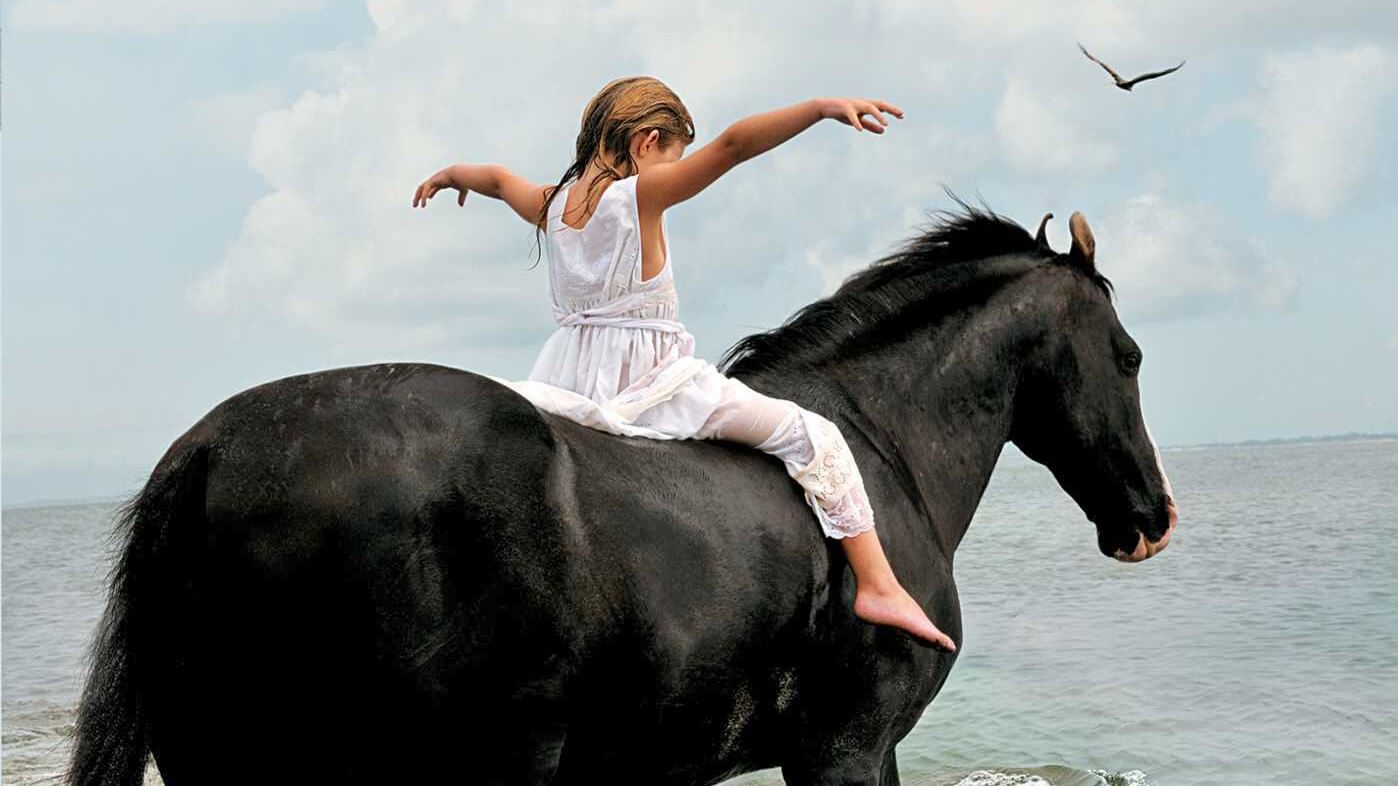“Horses are workmen, athletes, adventurers, accomplices. How they look is inessential. But how they go, how they are—in other words, who they are—is what makes any horse beautiful.” – Sarah Maslin Nir
 It may be surprising to some to learn that today there are over seven million horses in the United States, far more than ever in our history of horses, even when horses were our primary mode of transportation. In Horse Crazy, New York Times reporter and Pulitzer Prize finalist Sarah Maslin Nir has created a book that allows fellow equestrians to immerse themselves into the contemporary, awe-inspiring, and little-known aspects of today’s horse world. The daughter of a holocaust survivor growing up in New York City, Nir weaves together her autobiography and her adventures with horses in this fascinating tale.
It may be surprising to some to learn that today there are over seven million horses in the United States, far more than ever in our history of horses, even when horses were our primary mode of transportation. In Horse Crazy, New York Times reporter and Pulitzer Prize finalist Sarah Maslin Nir has created a book that allows fellow equestrians to immerse themselves into the contemporary, awe-inspiring, and little-known aspects of today’s horse world. The daughter of a holocaust survivor growing up in New York City, Nir weaves together her autobiography and her adventures with horses in this fascinating tale.
Nir does not merely own or ride horses, she lives them, in thrilling and unsuspecting ways. In adventure after adventure, Nir brings the reader into novel aspects of horses most of us equestrians are unfamiliar with.
As a young adult she worked as a volunteer ranger riding a barely broke draft horse in New York City’s Central Park chasing truant, pot-smoking school kids. At a summer job as a camp counselor at a “Western” cowboy camp on New York’s Long Island, she led dude rides along beaches and through abandoned military installations — she, dressed in cowboy garb, and tourists dressed in shorts and sneakers.
Much of the book revolves around Nir’s investigative reporting; wherever in the world she has gone on assignment she looks for horses. Her travels led her to the rare Indian Marwari horses with curlicue ears. Writes Nir, “I want to believe Marwari ears are magic. Everything curled is better: pug tails and pigtails and roller coasters and curly fries.” Marwari are illegal to export out of India yet once Nir is back stateside she finds a small population of Marwari living on Martha’s Vineyard, which she meets and befriends along with their owner.
She follows the Chincoteague Island ponies behind-the-scenes, literally paddling solo in a rowboat, as they are pushed to swim across the channel and she delves into what it is like for those who adopt a pony, as well as for the pony itself.
She travels with horses in the underbelly of a 747 airplane, from the Netherlands to New York City, to learn and write about importing Dutch warmbloods. Through the process she gains the trust of the shipping company who enlists her help with handling the horses and keeping them calm during the flight.
She discovers that Black people have been erased from the narrative of the American West, yet 25% of cowboys in the early years were Black. The winner of the first Kentucky Derby had a Black man as a jockey and a freed slave for a trainer. Unheard facts and untold stories.
To Nir, who competes in the jumping circuit, riding horses is an extreme sport. “I’ve seen hooves splinter wood like Jackie Chan, and pucker sheet metal like a Jurassic Park raptor,” she recounts as she details some of her own riding adventures. Nir unpacks a lot about herself in the book since horses are her therapists—as they are for many of us.
Nir lives and breathes it when she says, “Horses are a gift and when you sit astride them or just watch them in a field, they are a treasure and an adventure with four legs.”
This book is a treasure as well. It enlightens us on the value and roles horses play in today’s world and it serves to sweeten our mental picture of these magnificent animals.
Check out the Horses for Clean Water website for information on online classes, private consultations, tip sheets, and other resources for horse keeping and land management education. Our 6-week Spring Horse Keeping Online Series starts soon. Join us to learn about chore-efficiency, horse health, and natural resource conservation!
See this article in the 2021 March online edition:

Alayne Blickle, a life-long equestrian and educator, is the creator/director of Horses for Clean Water, an award-winning, nationally acclaimed environmental education program that “wrote the book” on caring for horses and land. Known for her enthusiastic, fun and down-to-earth approach, she is an educator and photojournalist who has worked with horses and livestock owners for over 20 years. Alayne teaches and travels throughout North America and abroad, and also runs Sweet Pepper Ranch, an eco-sensitive guest ranch and horse motel in Southwestern Idaho where she and her husband raise top-notch reining horses and beautiful grass hay. For more information contact Alayne at alayne@horsesforcleanwater.com or 206-909-0225.

